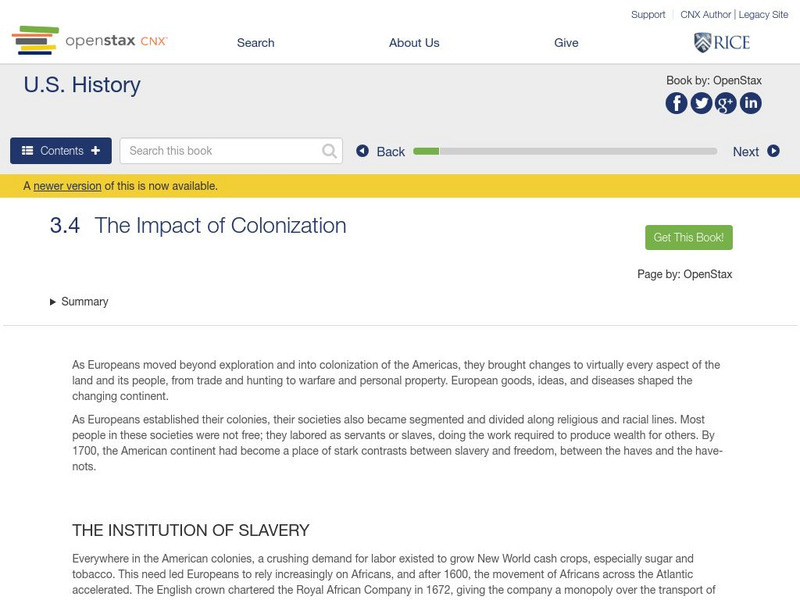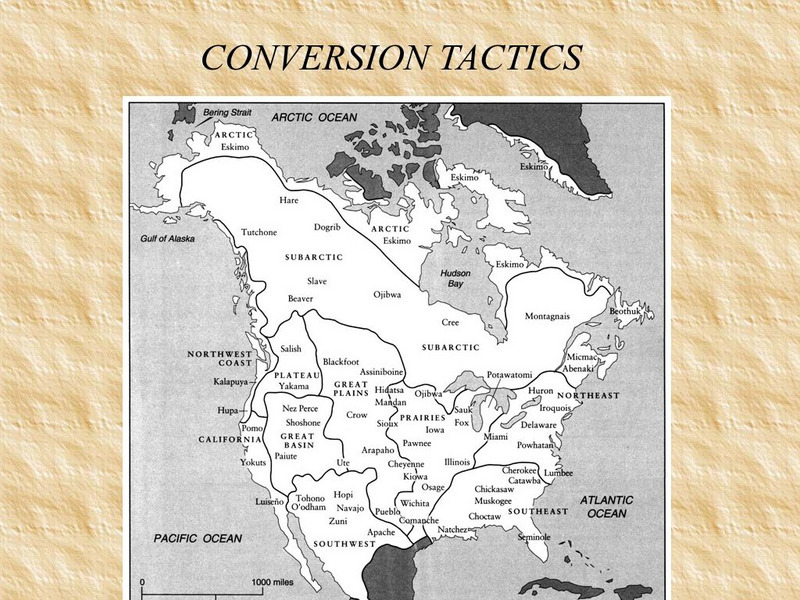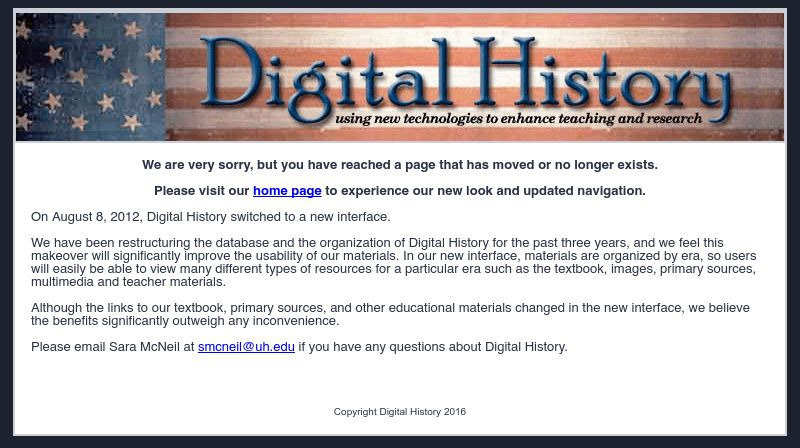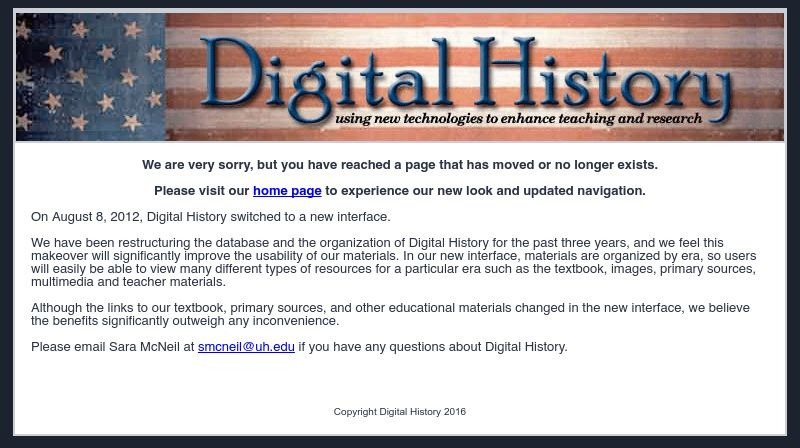PBS
Pbs Africans in America: Forten Letter to Cuffe
Read about James Forten's opposition to Paul Cuffe's American Colonization Society, which sought to recruit African-Americans to emigrate to Africa in the early 19th century. In addition, this site provides a link to the text of Forten's...
OpenStax
Open Stax: The Impact of Colonization
By reading this section of a chapter on "Colonial Societies," students will be able to explain the reasons for the rise of slavery in the American colonies, describe changes in Indian life, including warfare and hunting, contrast...
University of Groningen
American History: Essays: Anglo American Colonization in Texas: Negro Slavery
Describes the role slavery played in Texas in the mid-1800s, and the cotton plantations' role in the Texas economy.
Then Again
Then Again: Web Chron: Liberia Is Founded by Freed Slaves
Read how the nation of Liberia was founded by freed slaves as a result of the end of the transatlantic slave trade and the efforts of the American Colonization Society (ACS).
A&E Television
History.com: Native American History Timeline
As explorers sought to colonize their land, Native Americans responded in various stages, from cooperation to indignation to revolt. The timeline begins in 1492 with the arrival of Christopher Columbus and ends on March 15, 2021:...
University of Groningen
American History: Essays: Nieuw Amsterdam
This site lists the reasons why the Dutch trading companies were slower in colonization than the other New World countries.
University of Groningen
American History: Outlines: The Colonial Period of American History
Comprehensive information about the colonial period of American History. Includes information about New England, colonies, government, people, The French and Indian War, and the Salem Witch Trials.
National Humanities Center
National Humanities Center: Toolbox Library: Enslaved Peoples, American Beginnings: 1492 1690
Two Spanish accounts of enslaved Indians in the Caribbean and enslaved Africans in Mexico and statements of the difficulty of maintaining slavery and the lurking threat of a slave revolt.
Other
Exploring the Atlantic World: 1450 1850: Conversion Tactics
The Europeans tried to convert Native Americans to Christianity in a variety of ways ranging from the brutal force methods of the conquistadors to acceptance of the other's spirituality and way of life.
Digital History
Digital History: The Texas Revolution
Why would American citizens emigrate to Spanish-held, and later Mexican-held Texas? Read about the reasons, their grievances against their Mexican rulers, and the eventual revolution that brought independence to Texas.
iCivics
I Civics: Columbus to the Colonies
From the time Columbus first set foot in the New World, Europeans were fascinated with this new land. For this lesson, learners learn about the Three Gs that drove them here- gold, God, and glory- and find out how these settlers gave...
University of Groningen
American History: Outlines: Jamestown
This site provides information about the founding and development of the settlement at Jamestown.
Digital History
Digital History: Antislavery Timeline
A timeline of actions tied to the prohibition of or ending of slavery from the meeting of the Continental Congress in 1774 to John Brown's raid on Harper's Ferry in 1859.
American Cancer Society
American Cancer Society: Key Statistics for Colo Rectal Cancer
Here, you can read statistics on colorectal cancer occurances in both men and women in various age categories.
Library of Virginia
Virginia Memory: Petition of the Meherrin Indians
A lesson exploring the steps taken by the Meherrin Indians in Virginia to try to protect their lands from encroaching colonists
Other popular searches
- American Colonization Society
- North American Colonization
- Early American Colonization
- Latin American Colonization
- American Colonization Review
- Anglo American Colonization
- Native American Colonization
- American Colonization Crops















